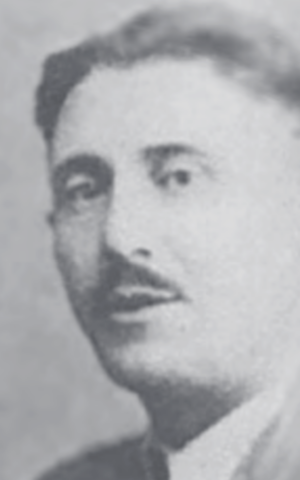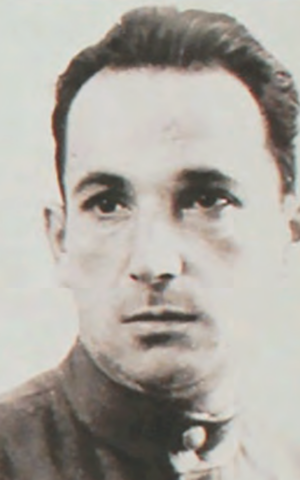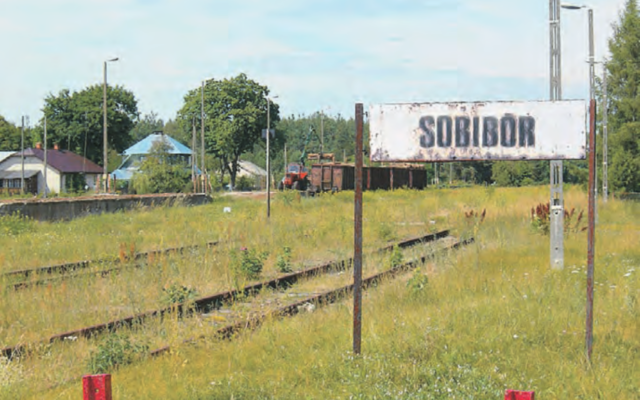The nobility and anguish of Jewish resistance
'Why did everything come so easily to the enemy?'
The historian and former resistance fighter in the Vilna Ghetto, Meir Dvorzeki demanded that when we examine the question of resistance during the Holocaust we do so only by seeking truth. “Do not depict the Jews of the ghettoes and the camps as better than they were,” he said. “Do not engage in apologetics. But do not portray them as lesser than they were.”
So let us consider this question of resistance in this spirit.
Raul Hilberg gives the most sobering assessment of how the Jews reacted to their immaculately choreographed extermination. He explains that 2000 years of Jewish exile and dispersal, living in almost constant danger, had given rise to a precise, formulaic reaction to danger.
The Jews had come to believe that in order to survive they had to refrain from resistance. When faced with a persecutor they would try to appease them. They could ransom themselves. Make appeals to people in high places or to public opinion. Failing that, they accepted their fate. As the deluge would set in, they waited for it to pass over them and then subside.
They did not comprehend that Nazism was unique. Whereas Rome or Spain or tsarist Russia were satisfied to exploit and brutalise or expel the Jews in their midst, Nazism would not rest until it hunted and destroyed every single living Jew.
As Hilberg concludes, the Jews could not make the switch. A 2000-year lesson could not be unlearned. And so, they were helpless.
The Germans, for their part, exhibited a chilling genius in their understanding of how people can be broken so absolutely as to comply in their own destruction.
In the ghettoes, the Germans appointed former Jewish communal leaders to form Jewish councils with which they would liaise. These councils undoubtedly believed they were acting in the best interests of their people, doing all they could to obtain information, negotiate concessions, maintain some semblance of routine for the condemned Jews.
We now know they should have been consumed with escape or rebellion and nothing else. Instead, they busied themselves educating children who would never become adults, and were helping to pacify the enslaved people that made their extermination considerably easier.
The Nazis also extinguished the capacity for resistance among those they enslaved by employing every psychological device used by the captor and the torturer.
They resisted to restore their dignity and that of their people, to regain some individualism, wrest back some scrap of freedom after everything good in this world had been burned and choked off.
They engaged in deception.
They used the element of surprise, conducting pre-dawn raids of ghettoes using baying dogs and live fire to shock the ghetto population into submission.
They degraded the Jews so completely as to crush any individualistic spirit. They used startling, unspeakable brutality to both shock and desensitise the Jews to suffering and they could even insert the occasional moment of respite, even a word of reassurance, to nurture docile compliance.
They kept the Jews off balance at all times. There were constant transports, new labour assignments to factories, movements from ghetto to camp, camp to camp.
In this uncertainty, doing nothing seemed a better option than stepping out of line to face the sadism of the guards, and an immediate and violent death. By the time death became an inescapable fact, it was much too late and the Jews usually fell into a paralysis and drifted to their graves.
The speed and efficiency of the destruction process meant that the Jews had no time, no space, no means and no physical capacity to resist in any meaningful or organised way.
We talk about the gradual process of destruction, beginning with the rise of Nazism and the Nuremberg laws and ending in the camps a decade later. But the actual mass killing process, still a quantum leap from the intense persecution preceding it, occurred not gradually but as a blitzkrieg.
In March 1942, almost 80 per cent of the eventual victims of the Holocaust were still alive. Only 20 per cent had by that point been murdered. By February 1943, that number was reversed. Eighty per cent of the six million were already dead. When the Final Solution became policy, murder became industrialised, and not a moment or a life was spared.
There were Jews who somehow slipped away when being led to their killing field, or made their getaway when being marched from their slave labour back to the camp. There was almost never a happy ending to their stories.
In the Lublin area of Poland, police battalions were given the task of combing the forests to find any last hiding Jews. The battalions called this the “Jew hunt”. Squads of three or four would ride out eagerly each morning to discover the underground bunkers in which starving, petrified individuals or sometimes whole families hid.
The only real choice the Jews had was complying in an anonymous death or hiding in the soil of a forest waiting for death to find them.
But acts of resistance great and small, organised and individual, can be found in every phase of the Holocaust.
Perhaps the most incredible instance of organised resistance occurred at the Sobibor death camp.

Sobibor was a purpose-built extermination camp, which virtually no one survived. By October 1943, transports to the camp were becoming less frequent as there were so few Jews left to kill, and rumours began to circulate that the camp would soon be dismantled.
When the nearby Belzec death camp was dismantled, the remaining prisoners were assured that after they completed the work of exhuming and burning bodies to conceal the evidence of genocide, they would be transferred to a camp in Germany. Instead, they were sent to Sobibor to die.
One of the men from Belzec managed to sew a note into his clothing, which was discovered by a prisoner assigned to sort the clothing of Jews killed in the gas chambers. The note said: “Be aware that you will be killed also! Avenge us!”
The uprising was instigated by a Polish Jew, Leon Feldhendler and a Jewish Red Army prisoner of war, Alexander Pechersky.
When Pechersky saw a senior SS officer mercilessly beating a Jew who had collapsed while chopping wood, Pechersky leaned on his axe and stopped working himself. Intrigued by this defiance, the SS man proposed a challenge for his own sadistic pleasure. If Pechersky could split a tree stump in under five minutes he would give him a pack of cigarettes. If he failed, he would be lashed 25 times.
Pechersky completed the task in fourand-a-half minutes. To demonstrate he was a man of his word, the SS man offered the cigarettes. Pechersky declined, saying that he didn’t smoke. The SS man suggested some additional rations instead. The starving Pechersky replied that he found the standard camp provisions to be adequate.
Feldhendler recognised in Pechersky, a rare coolness and steel, and knew he was the only man who could lead the uprising.

Together they coordinated the killing of the acting commandant of the camp while the camp tailor was fitting him for a jacket that had belonged to a murdered Jew. The resistors then killed 10 more SS guards before rushing the perimeter fence.
Only 58 Jews of the 300,000 that were sent to Sobibor survived. The majority of the resistors were either shot, blown up by land mines surrounding the camp or mopped up by German patrols in the forests. But the 2000-year pattern of helplessness in the face of torment that Hilberg had observed had been forever broken.
Feldhendler survived but was murdered by Polish antisemites in his apartment in Lublin in 1945. Pechersky survived in the forest, joined the partisans, survived Stalinism and died in old age in the Soviet Union.
Emanuel Ringelblum, who escaped the Warsaw Ghetto before being betrayed in hiding and executed along with the Polish family that hid him, wrote in lamentation: “Why didn’t we resist when they began to resettle 300,000 Jews from Warsaw to the camps? Why did we allow ourselves to be led like sheep to the slaughter? Why did everything come so easy to the enemy? Why didn’t the hangmen suffer a single casualty? Why could 50 SS men and 200 Ukrainian guards carry out the operation so smoothly?”
No one among us can judge the actions of those placed in that purest rendering of hell that was the Holocaust. No one can say how they would have conducted themselves if faced with their circumstances.
Perhaps the greatest difference between those who could resist and those who could not was their conception of hope. The resistors did not live in hope that the killing process would just exhaust itself. Or that anyone was coming to liberate them. They knew they would die. Their hope was that by rebelling they could briefly create a new reality, a dawn they knew they would never see.
They resisted to restore their dignity and that of their people, to regain some individualism, wrest back some scrap of freedom after everything good in this world had been burned and choked off.
In the dying words of the resistors, we see a common theme. Amid it all was a crushing loneliness, a sense that they existed and were being erased as if on an island, unseen, unknown, cut off from all the world that was indifferent and oblivious to their tortured fate. That no one would know they ever lived and died.
But the resistors speak to us now. They tell us that they lived, did not succumb, did not go quietly, did not give up.
They teach us what it means to have courage, to be strong even when faced with an unstoppable force. To see a world and a destiny beyond our own lives.
And we, even here, so far in space and time from the scenes of the crimes, honour them, remember them, we speak their names and we marvel at their greatness.
Alex Ryvchin is co-CEO of the Executive Council of Australian Jewry. His new book on antisemitism, The Seven Deadly Myths, is out next month. This piece is based on speeches delivered at Holocaust Remembrance Day ceremonies in Brisbane, Gold Coast and the Sunshine Coast on Sunday, April 16, 2023.


comments